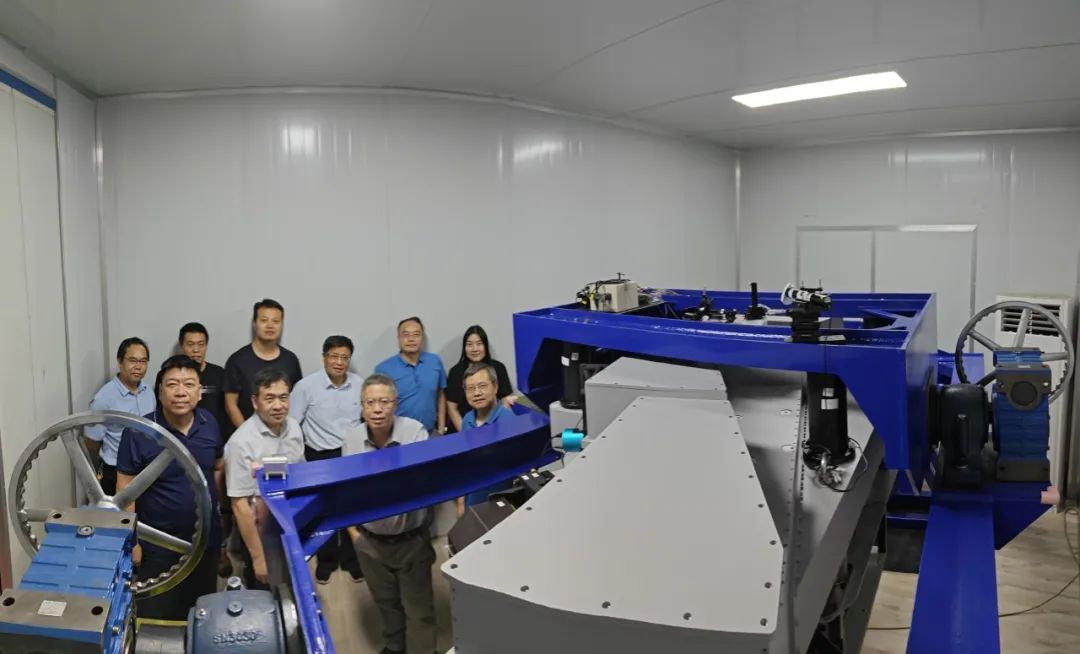The Next Generation Palomar Spectrograph (NGPS), an optical spectrograph jointly developed by Peking University, the National Astronomical Observatories of the Chinese Academy of Sciences (CAS), the Nanjing Institute of Astronomical Optics & Technology of CAS, and the California Institute of Technology, passed the pre-ship international review on July 12-13 2023. NGPS is also a project partly funded by the National Natural Science Foundation of China as a major scientific research instrument project led by Peking University, while the Nanjing Institute of Astronomical Optics & Technology was responsible for most of the technical development and fabrication.
Peking University organized experts from the Purple Mountain Observatory of CAS, the Hangzhou Institute of Advanced Research of the University of Science and Technology of China, University of Science and Technology of China, Nanjing University, Nanjing Normal University, and other units to conduct the technical tests and evaluation of the instrument project. Leaders and project team members from Peking University, the National Astronomical Observatory of CAS and the Nanjing Institute of Astronomical Optics & Technology attended the meeting.

NGPS pre-ship international review meeting on July 12th
(California Institute of Technology project manager Rob Bertz and scientist Lin Yan attended the meeting)
The experts listened carefully to the development report made by the project team at the meeting, reviewed the relevant test reports and technical documentations, checked the spectrograph on site, and tested various indicators. After inquiry and thorough discussions, the experts unanimously agreed that all technical indicators of NGPS fully meet the technical requirements. The instrument is expected to be shipped to the California Institute of Technology in August 2023.

On July 12th, experts from the testing team and project team members inspected the spectrograph on-site
NGPS is an advanced spectrograph with high throughput coverage across the full optical wavelength range, setting a new standard for all similar spectrographs. It will be installed in the Cassegrain focus of the 5-meter Hale Telescope of the Palomar Observatory, replacing Double Spectrograph (DBSP), a workhorse spectrograph that has been on the Hale Telescope for more than 40 years. The innovative design of NGPS has four channels, so a single exposure will achieve wide-band coverage of 310nm-1040nm with a spectral resolution from 1800 to 6000. The peak efficiency of NGPS, after including the atmosphere and the telescope, is better than 45%, achieving a new state-of-the-art for international optical instrumentation. An adaptive optics system interface is reserved in front of the focus of the spectrograph so that the instrument can become more powerful for future facility upgrades.

Group photo of NGPS technical test experts and project team members on July 13th
News translated from: http://www.niaot.ac.cn/xwzx/kydt/202307/t20230717_6811732.html